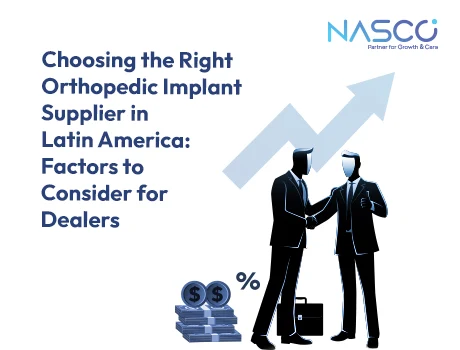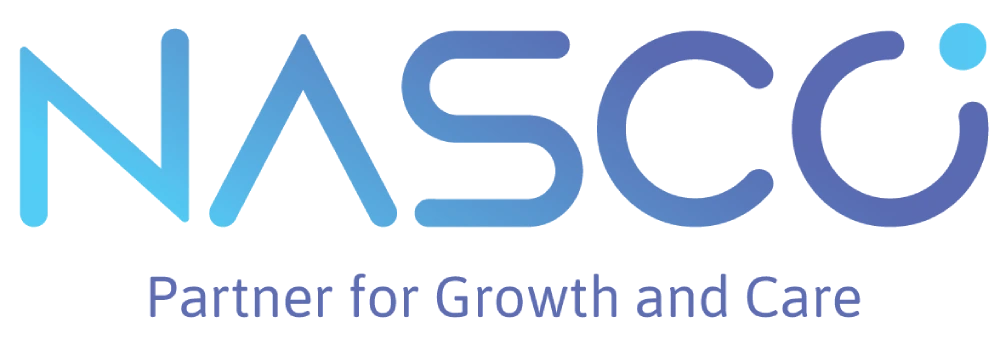Right Orthopedic Implant Supplier in Latin America
Choosing the Right Orthopedic Implant Supplier in Latin America: Factors to Consider for Dealers
Considering the direct influence, a good implant can have in healing and the sophistication that a wrong one can cause, the time spent on deciding and choosing on an Orthopedic Implant is worthwhile. There are many governing parameters and factors that dealers need to consider while narrowing down the supplier options and without any compromise on neither quality or genuineness of the implant. When selecting an orthopedic implant supplier, dealers should consider several factors to ensure they choose a reliable and suitable partner. Here are some key factors to consider:

Product Quality & Reliability
The dealer should assess the supplier’s track record for manufacturing high-quality Orthopedic implants that meet industry standards and regulatory requirements. This includes evaluating the supplier’s manufacturing processes, materials used, and product performance. NASCO with its inception in 2014, has emerged as a leading supplier of Orthopedic Implants across multiple Countries including Sri Lanka, Vietnam, Kenya, Venezuela, USA, and Peru. Its dedication to quality is reflected in the products, which are CE marked and ISO certified, ensuring compliance with the highest industry standards.
Range of Products
Should you choose one supplier or two? In this domain, working with a close partner is one of the most important elements that helps you to identify the range of products. Dealers should assess the supplier’s product portfolio to ensure it offers a comprehensive range of orthopedic implants that cater to different surgical needs. This includes considering the variety of implant types, sizes, and configurations available. NASCO has nearly 300+ varieties of Products ranging from Trauma, Spine, Arthroscopy, Oral & Maxillofacial, Hip, Microfragments, Foot & Ankle for different anatomical locations with superior quality.
Local Regulatory Compliance
Each country in Latin America may have its own regulatory agencies and requirements for medical devices. Dealers should ensure that the supplier complies with the specific regulations and has the necessary certifications for each target market in the region.
Latin American countries have their own regulatory frameworks for medical devices, which may include registration, quality control, labeling, and post-market surveillance requirements. For example, in Brazil, medical devices are regulated by the Brazilian Health Regulatory Agency (ANVISA), while in Mexico, the Federal Commission for Protection against Sanitary Risk (COFEPRIS) oversees medical device regulations. Dealers should familiarize themselves with the specific regulations in the target markets they intend to serve.
Latin American countries often require medical devices to meet specific quality standards and carry certifications. For instance, the International Organization for Standardization (ISO) certifications, such as ISO 13485 for quality management systems, are widely recognized.
Additionally, some countries may have specific certifications or conformity assessment processes that need to be fulfilled. NASCO’s commitment to quality is unmatched. As an ISO-certified (ISO 9001 & ISO 13485) CE marked, Orthopedic implant and instrument manufacturer, they adhere to stringent quality control measures to ensure the highest standards in every product they deliver. Their offerings are reliable, safe, and designed for optimal patient care.
Pricing & Affordability
Latin American countries often have limited healthcare budgets and economic disparities. As a result, the market price sensitivity is high, and healthcare providers and patients are often looking for cost-effective solutions. Dealers should consider the local market’s price sensitivity and assess whether the supplier’s pricing aligns with the affordability expectations of the target market.
Assess the cost-effectiveness of the supplier’s products by considering factors beyond the initial purchase price. Evaluate the durability, longevity, and reliability of the orthopedic implants. If a supplier’s products have a higher upfront cost but offer longer lifespan or reduced revision rates compared to alternatives, it may result in cost savings over time for healthcare providers. While affordability is important, it should not come at the expense of compromising the quality and safety of orthopedic implants.
Dealers should ensure that the supplier’s products meet the necessary quality standards and have a proven track record of reliability. It’s crucial to strike the right balance between price and quality to deliver value to healthcare providers and patients.
After Sales & Technical Support
After-sales service and technical support are essential considerations when selecting an Orthopedic implant supplier in Latin America. Evaluate the supplier’s responsiveness to customer inquiries and support requests. Dealers should assess the supplier’s ability to provide timely and efficient customer service.
This includes considering factors such as average response times, availability of dedicated support channels (e.g., phone, email, online chat), and the supplier’s commitment to addressing customer concerns promptly. Review the supplier’s warranty terms and conditions to understand the coverage and duration of warranty protection for their orthopedic implants. Dealers should also assess the supplier’s return policies, including the process for returning defective products or resolving customer complaints. Clear and fair warranty and return policies contribute to customer satisfaction and trust in the supplier.
NASCO is a reliable choice for dealers who are looking for excellent Customer service. Their commitment to customer satisfaction goes beyond the sale. They provide comprehensive after-sales service, offering technical support and assistance. With us, clients receive ongoing guidance and support throughout their orthopedic implant business journey.
Moreover, they empower their distributors and partners with training, marketing support, and tailored materials to effectively engage their Clients. This collaborative approach ensures seamless communication and strengthens relationships for improved patient outcomes.
Regional trends & Preferences
Latin American countries may have unique regulatory requirements and processes for medical devices. Suppliers with experience in the Latin American orthopedic implant market are familiar with the local regulatory landscape.
They understand the registration processes, quality standards, and compliance requirements for marketing medical devices in different countries within the region. This knowledge helps ensure regulatory compliance and avoid potential hurdles in the market entry process.
Suppliers with a proven track record in the Latin American orthopedic implant market often have established relationships with local key opinion leaders, renowned surgeons, and healthcare institutions. These relationships are valuable for gaining endorsements, conducting clinical trials, and receiving feedback on product performance and suitability for the local market.
NASCO has long been serving the need of Orthopedic Implants in Latin America and is well versed with the regulatory landscape of the Countries.
By considering the various factors mentioned earlier, dealers can make a more informed decision when selecting an orthopedic implant supplier in Latin America. Assessing factors such as product quality, pricing, distribution network, after-sales service, and regulatory compliance ensures that the selected supplier aligns with the specific business needs of the dealer.
This leads to a more effective partnership, as the supplier can provide the required products and services that meet the dealer’s objectives and goals. Ultimately, considering these factors helps dealers make a more informed decision that leads to a successful partnership with an orthopedic implant supplier.
By selecting a supplier that aligns with their business needs, provides high-quality products, ensures reliable supply, offers excellent customer support, and understands the local market, dealers can deliver value to healthcare providers and patients in Latin America and drive their own business growth.

